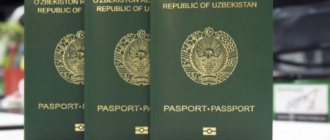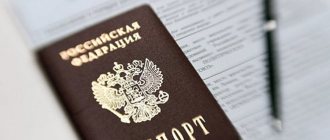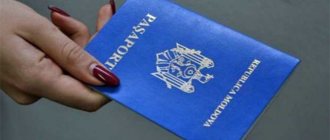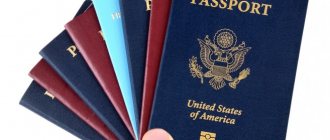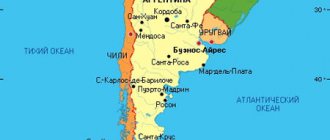Ways to obtain Estonian citizenship
There are 4 ways to obtain an Estonian citizen’s passport:
- By birth.
- On restoration.
- By origin.
- Naturalization.
Obtaining citizenship by birth
This method of obtaining citizenship applies to children who were born on the territory of Estonia. A child can receive this status if at least one of the parents has an Estonian passport. However, even if both parents have citizenship of other countries, but have legally resided in the territory of this Northern European country for 5 years or more, then according to the law, the baby has the right to receive Estonian citizenship.
Obtaining an Estonian passport upon restoration
This method is suitable only for that category of people who had citizenship of a given country, but, for some reason, lost it. The main condition is that Estonian citizenship was lost before the age of 18. If a passport of another country was received after reaching adulthood, then citizenship can be returned under normal conditions, as for other people.
Obtaining citizenship by descent
In this case, the applicant can apply for an Estonian passport, provided that the person is a descendant of a citizen of the country who lived in this state between 1918 and 1940, when the country was completely independent.
Obtaining citizenship by naturalization
This method is the most common and suitable for citizens of other countries who wish to reside permanently in Estonia and have a passport of this country. It is worth noting that compared to other European countries, this Northern European country is quite loyal to foreigners who meet certain insufficiently stringent requirements.
Renunciation of Estonian citizenship
You can renounce acquired citizenship. To do this, it is not even necessary to be on its territory; it is enough to contact the diplomatic mission of Estonia in the country of your stay with a corresponding application. You can also transfer from Estonian citizenship to citizenship of almost any country that is part of the European Union. But for Russians, joining the EU by obtaining an Estonian passport is far from the best way.
Today, small Estonia is approaching developed EU countries in terms of living standards. Estonians, like their neighbors in the Baltics and Scandinavia, are very picky about candidates for fellow citizens. This is probably why they still manage to preserve their national identity. Despite this, Russians may well obtain Estonian citizenship under certain circumstances.
Expert opinion
Tatiana Belova
More than 6 years of experience. Specialization: civil law, contract law, social security law, consumer protection. 8
Example text
Who can apply for Estonian citizenship
Basic requirements for obtaining citizenship:
- the person was 15 years old at the time of naturalization;
- residence in the country for 8 years, while the last 5 years must be continuous;
- passing a language proficiency test, the minimum level must be A2, however, if a person studied at one of the Estonian universities, then he is exempt from the language proficiency test;
- the applicant must also pass an exam on knowledge of the country’s Constitution;
- providing a source of income. The applicant and his family (if any) must indicate the official place of work;
- you need to have a residence permit and documents confirming the rental or ownership of the residential premises;
- Also, when obtaining citizenship, you need to take an oath and confirm your loyalty to the new country.
It is worth noting that the naturalization procedure for persons with disabilities is much simplified. Children who are not yet 15 years old are completely exempt from testing the Estonian language, and they also do not need to take an exam on their knowledge of the basic laws of the country.
Advantages and disadvantages of Estonian citizenship
The advantages that an Estonian passport provides are difficult to dispute. What does the newly minted citizen get with it? So, the main advantages of Estonian citizenship are:
- the right to freely travel within the borders of the European Union and the Schengen countries;
- much faster acquisition of citizenship of any EU state than for a citizen of a third country;
- the right to purchase real estate and freely visit it both within this small Baltic state and within the entire European Union;
- opportunity to work in Estonia and in the European Union with a good salary, comfortable working conditions, without quotas and special permits;
- high degree of social protection;
- opening accounts in Estonian and European banks, obtaining loans at a loyal interest rate;
- simpler conditions for obtaining a visa to the United States of America, Canada, Australia, New Zealand;
- high European pensions;
- free secondary and practically free higher education, as well as a European-style diploma that does not require nostrification in most countries of the world;
- full suffrage;
- opportunity to serve in government agencies.
Estonian citizenship is European Union citizenship
Along with obvious advantages, having an Estonian passport also has its disadvantages:
- Estonia does not recognize dual citizenship;
- to gain citizenship, you will need to pass an exam on knowledge of the Estonian language, which is quite difficult for Slavic-speaking immigrants to learn;
- the standard of living in Estonia, although high, is much lower than the European average;
- an Estonian citizen of military age is required to serve in the army;
- It is difficult to obtain Estonian citizenship.
Required documents
All documents required to obtain citizenship can be submitted in several ways:
- A person can independently take the papers to the migration department, which is located at the prefectures.
- If it is not possible to carry the documents with your own hand, then you can send them by mail.
- Send documents by email. All papers are sent to
If the application for citizenship is submitted directly to the migration department, then the application can be processed directly on the spot. The person who works there can help the future citizen prepare all the necessary documents.
Required documents for a person over 15 years of age:
- application for Estonian citizenship. It must be filled out exclusively in Estonian; all required fields can be filled in manually using a ballpoint pen or on a computer. It is worth noting separately that corrections in this document are strictly prohibited;
- biography. Can also be written by hand or on a computer;
- one photo. When submitting documents in person, it must meet the following requirements: size – 4 by 5 cm, color. If the submission of papers occurs via e-mail, then: size – 480 by 600 pixels. It is highly recommended to submit only those photographs that were taken no later than six months ago;
- passport;
- a confirmation that indicates that the applicant has renounced citizenship of another country, or guarantees can be provided where the person undertakes to renounce it as soon as he receives an Estonian passport. Children from 15 to 18 years of age do not have to give such confirmation, however, appropriate consent from parents or guardians is required;
- documents proving education;
- certificates from previous places of work;
- paper indicating the presence of permanent income, this can be: wages, income from business, parental allowance, alimony, scholarship, pension;
- There must also be documents that indicate knowledge of the Estonian language: a certificate or diploma of education that was received in Estonia;
- receipt for payment of state duty. Its cost is 13 euros.
If a person restores Estonian citizenship, he will also need to collect the following documents:
- a passport of a citizen of another country, which indicates that this person has a residence permit in Estonia;
- paper confirming the loss of Estonian citizenship.
If you are applying for citizenship based on Estonian origin, you must additionally provide:
- official confirmation that the applicant’s relative was or is a citizen of Estonia. A document that can evidence this can be: passport, birth certificate, documents from the archive;
- the applicant's birth certificate;
- birth certificates of all descendants of an ancestor who was Estonian;
- international passport (needed only in some cases).
For persons under 15 years of age, all documents are submitted by parents or one of the parents, but there must be consent from the absent family member. The father or mother of the child must submit the following list of documents:
- application for Estonian citizenship;
- photography (it has the same requirements as for adults);
- documents that identify the child’s parents;
- if the calving or the mother are foreign citizens, then it will be necessary to show documents of a residence permit in Estonia;
- birth certificate.
It is worth noting that a fee of 13 euros does not need to be paid; children under 15 years of age are exempt from this payment.
How to obtain Estonian citizenship for Russians and other foreigners
The Department of Citizenship and Migration deals with issues of granting citizenship in Estonia. This is where you should apply
and the necessary package of documents. Their list includes:
- passport of a citizen of the Russian Federation;
- a valid foreign passport and all previous expired passports (if available);
- autobiography;
- certificate of no criminal record in the Russian Federation;
- documentary evidence of the legality of stay on Estonian territory;
- confirmation of a legal source of income in Estonia;
- a certificate from the tax office confirming the absence of debts to the Estonian budget;
- a medical examination certificate confirming the absence of socially dangerous diseases;
- a certificate from the Estonian police confirming that the applicant is law-abiding;
- a certificate indicating successful completion of testing for knowledge of the Estonian language and integration into Estonian society;
- four color passport size photographs;
- ownership of housing or a long-term lease agreement;
- receipts for payment of stamp duty and other administrative services upon receipt of citizenship.
All submitted documents must first be translated into Estonian, some must be notarized. For high-quality and correct translation, it is advisable to use the services of an accredited bureau. Those documents that were received within the European Union will not require either translation or notarization.
Estonia issues machine-readable passports to its citizens, with which they can travel throughout the EU
Cost, procedure, timing
The application and necessary documents are submitted to the Department of Citizenship and Migration of the Republic of Estonia, or more precisely, to its representative office in the prefecture of residence of the applicant. The authorities can consider the application for a maximum of one year, after which they will send a notification to the applicant that a positive or negative decision has been made on his issue.
The stamp duty upon acquisition of citizenship will be 150 euros, another 20 will need to be paid for the production of a passport. Becoming a citizen takes place at a special ceremony. To do this, the newly made citizen is invited by the prefectural administration and solemnly swears allegiance to the Republic of Estonia, after which he is given a passport.
What I do agree with is the high prices for utility bills.
With one huge “but”: houses with major renovations will give a hundred points ahead to Khrushchev’s wrecked buildings and cheap panels at exorbitant prices in Russia. You can pay 150 euros in winter for utility costs, living in a solid and renovated or well-built apartment building in Tallinn - and at the same time not incur the additional costs of purchasing heating devices in each room. Vladimir https://pora-valit.livejournal.com/1874817.html
Estonian citizens are issued a plastic identification card, which can be used like a passport in everyday situations.
Exams
Before obtaining Estonian citizenship, the applicant is required to pass certain exams on the level of language proficiency and knowledge of the laws, national traditions and customs of the Estonian people. This procedure requires careful preparation.
The state has organized special free courses for candidates for citizenship, where they can study the basics of the Estonian language for 12 academic hours. Twelve hours is clearly not enough time to fully master Estonian, which belongs to the Finno-Ugric group and is difficult to learn for those who are used to communicating in one of the Slavic languages, especially Russian. Therefore, for a deeper and more detailed mastery of the Estonian language, it is advisable for the applicant to study with a tutor.
The experience of Russians who have received Estonian citizenship suggests that it is possible to fully learn the Estonian language within 3–5 years of being in a language environment.
When taking the test, you must speak Estonian fluently, be able to write an autobiography in it, and also know and be able to recite the words of the national anthem. The test is difficult to pass the first time. If you were unable to pass the exam immediately, you can do it again, but not earlier than six months after the previous attempt. The number of attempts is not limited.
Estonian proficiency test is difficult to pass the first time
Features for minors
Estonian immigration law provides for self-application for citizenship from the age of fifteen. Until this time, his parents can petition for a minor. The mother and father must be present when submitting the petition. If one of them is raising a child alone, then they will need to explain the absence of the other parent by submitting the appropriate documents. If the parents are divorced, then the absentee must present a notarized consent for his minor child to acquire Estonian citizenship. Stateless parents (persons without specific citizenship) who have lived in Estonia for at least five years can also apply for a child. When filing a petition, the guardian must submit a formal decision establishing guardianship.
If the child’s parents have different nationalities, then they need to enter into a formal agreement between themselves that their child will take on Estonian citizenship. The agreement will also be included in the list of additional documents. If children have citizenship of another state, they will need to express their written consent to leave it (after 15 years). Before this age, a similar document for a minor must be signed by his parents.
Children under 15 years of age can move to Estonia and obtain citizenship only at the request of their parents
Conditions for pensioners
There are no separate immigration programs in Estonia that provide preferential conditions for pensioners moving to Estonia. Therefore, Russian pensioners can obtain citizenship of this country on general terms. To do this, in addition to the necessary documents, they will need to submit an extract from the country’s pension fund on the amount of security paid to them.
How much to wait
It is worth noting that the process of granting citizenship itself is quite lengthy and complex. All documents, of course, are considered individually and at the state level. Therefore, there is no point in hoping that in a week or two you will get citizenship.
All documents provided by a potential citizen are sent to the Cabinet of Ministers within 6 months. Further, the review process must be completed within a period of 2 months. That is, it turns out that in the worst case, a decision can be given 8 months from the date of submission of all documents. But usually, the answer comes a little earlier.
If the Cabinet of Ministers has approved a specific candidacy, the Police and Border Guard Board sends a letter to the newly minted citizen informing him that his candidacy has been approved. The letter also states that he can pick up the citizenship certificate at the ceremony or it will simply be sent to him by mail.
When a person has received this certificate, he needs to make a request to receive a new passport or ID card.
Procedure for obtaining citizenship
After you have succeeded in obtaining a residence permit in Estonia, you can proceed to obtaining permanent residence and then citizenship. This process is accompanied by difficulties if the conditions of the state are not met. Every foreigner needs to know what documents to submit and where, as well as the cost and timing of registration, exams and places to obtain a passport.
Where and what documents to submit
List of documents required to obtain local citizenship:
- a hand-signed petition;
- foreign and internal passports;
- 1 photo 4x5 cm;
- applicant's biography;
- proof of a stable source of income;
- diploma of passing exams in language and knowledge of the law;
- receipt of payment of duty.
Information to obtain local citizenship must be submitted to the Estonian Police and Border Guard Department. When completing certain programs, additional information will be required: for example, for naturalization they will require proof of residence in the territory of the republic, for citizenship by origin - the presence of family ties with Estonian ancestors.
Registration costs and waiting times
Since not every foreigner is able to prepare the documentation on his own, most of the costs will go towards legal assistance. If you want urgent processing, the amounts will only increase. Additionally, you can contact companies that are engaged in confirming documentation, as well as searching for evidence of the migrant’s belonging to the family of native Estonians.
The fee for receiving the service is low - from 13 to 15 euros. The readiness of the document is determined by the workload of the department. According to the law, the minimum period for reviewing documents is 6 months, while another 2-3 months may be spent on identity verification.
Exams and tests for candidates
To obtain a residence permit in Estonia, and then citizenship, you must pass a language test. Candidates over 15 years of age take it. In addition to the language exam, the applicant must demonstrate knowledge of the main document of the republic and the main provisions of the legislation. A migrant can take advantage of the free right to language training: to do this, he must submit an application to the embassy. The duration of training is 12 lessons, courses are held in all cities of the republic.
The applicant also needs to learn the Estonian Constitution: there are a lot of books on sale for this. The future citizen must thoroughly learn the rights of local residents and his rights and responsibilities.
Features for minors
There are several features for obtaining citizenship by minor children:
- when born on the territory of another state, you must present a birth certificate;
- if the parent’s surnames on the certificate and at the time of registration of citizenship are different, then it is necessary to provide information about the change in data;
- When submitting documents, the guardian must provide confirmation of representation;
- it is necessary to provide evidence of the child’s belonging to the republic.
A passport for minors is issued within 30 days from the date of application. Children are not required to take a language test or a constitutional exam.
Conditions for pensioners
The republic does not provide for any preferential programs for retirees moving to the country. If older people wish to move to Tallinn for permanent residence, the procedure will be carried out on equal terms as for other foreigners. There are still some nuances - every pensioner seeking to obtain a residence permit or permanent residence permit, as well as citizenship, is recommended to prepare in advance an extract from the pension fund indicating the amount of social benefits.
Where to get a ready-made passport
Russians, Ukrainians or Belarusians, as well as other foreigners, must contact a service bureau to obtain an Estonian passport. Such points are located in Tallinn, as well as in other state prefectures. The passport is issued within 30 days from the date of submission of the application for its registration. You can also obtain the document at a foreign mission of the republic. Upon urgent application, a passport can be issued within 2 working days.
What to do in case of refusal: reasons
There are situations when a foreign person is denied citizenship. Then it is necessary to look at the root of the problem: most likely, the documents were selected incorrectly or the requirements were not met. The most common reasons for refusal:
- providing false data;
- hiding important information when filling out a form;
- violation of local laws;
- conducting criminal activities;
- work in state security agencies of another country;
- reluctance to renounce previous citizenship.
According to statistics, there are much more refusals to obtain citizenship than positive answers. Despite the visa-free regime with some countries, as well as the high probability of obtaining citizenship for ethnic reasons and repatriation, Estonia does not seek to issue citizenship to foreigners.
Dual citizenship in Estonia: how to obtain
According to the current legislation of this country, a person is prohibited from having citizenship of Estonia or any other country. When registering it, a person undertakes to get rid of the past within the time established by law.
However, children whose parents have different citizenships can live in this country with dual citizenship. For example, the mother is Estonian, and the father is Belarusian, but in the future, the parents will still have to decide on the choice of citizenship.
How to restore Estonian citizenship
Anyone who lost their citizenship as a minor has the right to apply for a procedure for the restoration of citizenship. To do this, you need to collect a set of necessary certificates, fill out an application, and then take it to the bureau that considers citizens’ questions about migration.
People applying for the restoration of an Estonian passport must remain permanently in the country and not be nationals of any other state, or provide evidence that dual citizenship is allowed in their country.
Electronic citizenship and what it gives
Electronic citizenship of a given country allows a foreigner to legally open a company, pay taxes, and sign contracts, while the person does not need to go anywhere, everything happens right in front of the computer.
The main advantages of electronic citizenship include:
- the opportunity to open a company in a given country using the Internet within 20–30 minutes. To do this, you just need to go to a special government website;
- all country taxes can be paid online;
- You can sign any kind of agreement using an electronic signature.
It is worth noting that this type of citizenship does not allow a foreigner to freely visit the countries of the European Union; moreover, it is forbidden to even visit Estonia. Therefore, this type of citizenship is required only for people conducting any activity in the territory of this country.
Advantages of having Estonian citizenship
Estonian citizenship is beneficial for Russians in many ways. The high standard of living and mentality differ significantly from Russian regions. Let's consider the main advantages of permanent residence in this state legally:
- Estonia is part of the European Union, and its citizens can enjoy visa-free travel in most neighboring countries.
- Fast registration and loyal requirements when compared with other European countries.
- A citizen can apply for benefits and participate in government programs.
- You can acquire property, build your own business and hold government positions.
- There is an opportunity to work in any country of the European Union.
- Medical care and education at the highest level.
- Cooperation with Estonian financial institutions on loyal terms.
- Decent pensions at the European level.
An Estonian citizen receives great prospects in terms of his own education and development of his professional activities. In addition, many Russians live on Estonian soil and there are even Russian-speaking towns in which people feel like they are in their homeland.
